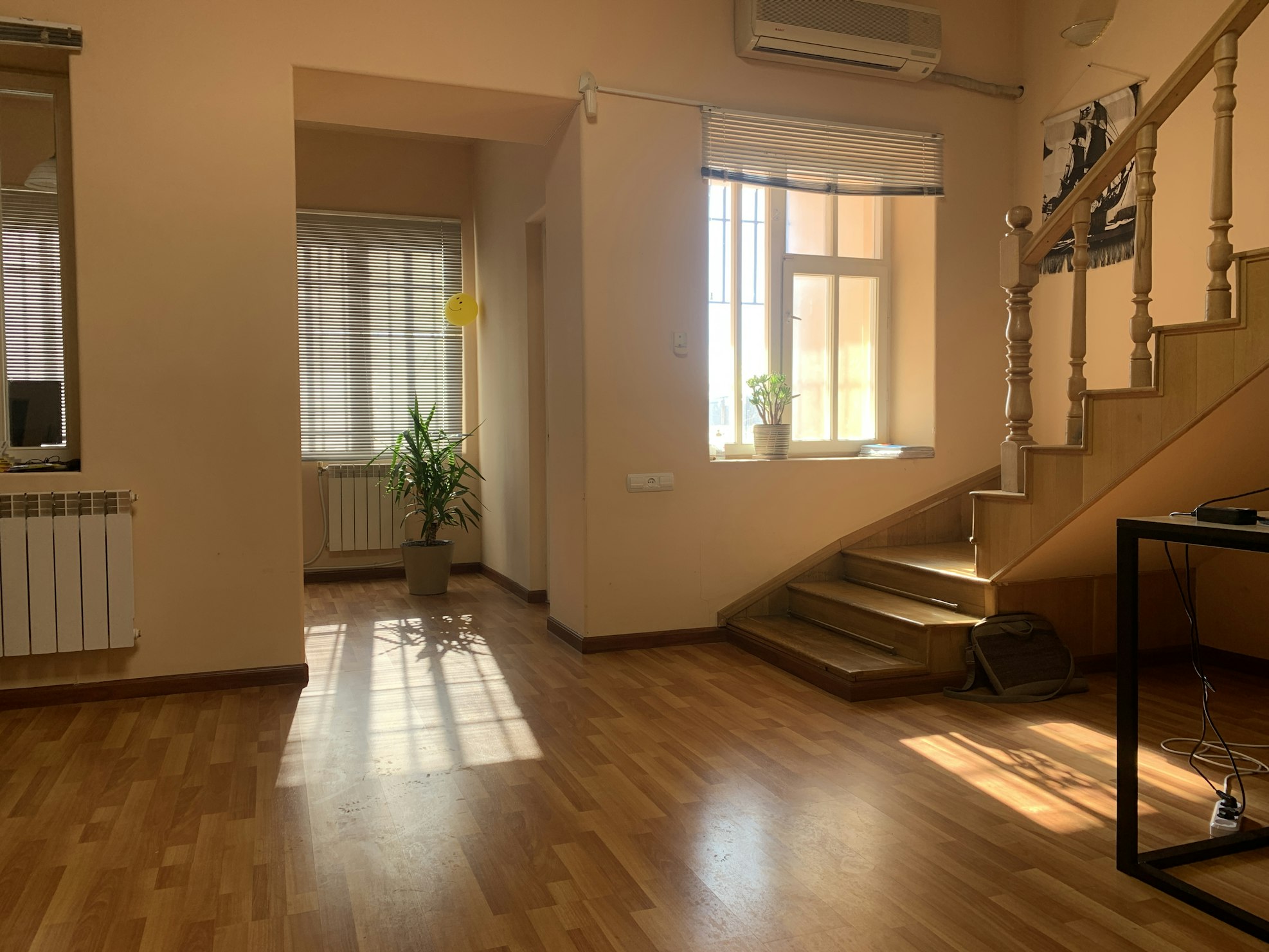Dive into the characteristics of solid vs. engineered wood floors to help you make an informed decision that aligns with your style, budget, and lifestyle.
Solid hardwood floors
Solid wood floors are timeless, boasting a classic appeal that can enhance the aesthetics of any room. Crafted from a single piece of wood, these floors are durable and can be sanded and refinished multiple times, making them a long-term investment.Pros of solid hardwood flooring
- Authenticity: Solid wood floors provide an authentic and natural look, enhancing the warmth and character of your living space.
- Longevity: With proper care, solid wood floors can last for decades, aging gracefully and developing a unique patina over time.
- Refinishing Options: The ability to sand and refinish solid wood floors allows you to change the stain or finish, giving your floors a fresh look.
Cons of solid hardwood flooring
Susceptibility to Moisture: Solid wood is more prone to expanding and contracting with changes in humidity, making it less suitable for areas with high moisture levels.Installation Constraints: Solid wood floors are typically nailed or stapled to a wooden subfloor, limiting their installation options compared to engineered wood.
Engineered hardwood flooring?
Engineered wood floors are constructed with multiple layers of wood, topped with a hardwood veneer. This construction provides greater stability and makes engineered wood a versatile choice for various environments.Pros of engineered hardwood floors
- Stability: The layered construction of engineered wood makes it more resistant to changes in temperature and humidity, making it suitable for basements and areas with fluctuating conditions.
- Versatility in Installation: Engineered wood can be installed as a floating floor, glued down, or stapled, offering more flexibility in where and how it can be installed.
- Environmentally Friendly: Engineered wood uses less hardwood than solid wood floors, making it a more sustainable option for eco-conscious homeowners.
Cons of engineered wood flooring
Limited Refinishing: While engineered wood can be sanded and refinished, it has a thinner hardwood layer than solid wood, limiting the number of times it can be refinished.Perception: Some homeowners still associate engineered wood with lower quality, although advancements in manufacturing have made this perception outdated.
So, which flooring won? Engineered hardwood or solid hardwood flooring??
In the solid vs. engineered wood floor debate, there is no one-size-fits-all answer. The best choice depends on your specific needs, preferences, and the environment in which the flooring will be installed. If you prioritize authenticity and have a stable indoor environment, solid wood may be the perfect fit. On the other hand, if you seek versatility, stability, and a more environmentally friendly option, engineered wood is worth considering.When it comes to finding the perfect hardwood flooring in Chatham, London, and Sarnia, ON for your home, Sacwal Flooring Centres is your go-to destination. With showrooms in Chatham, London, and Sarnia, Ontario, we offer a wide selection of solid and engineered wood floors to suit every style and budget. Visit us today to explore our flooring options and let our experts guide you in making the best choice for your home. Elevate your space with Sacwal Flooring Centres ? where quality and style meet.



